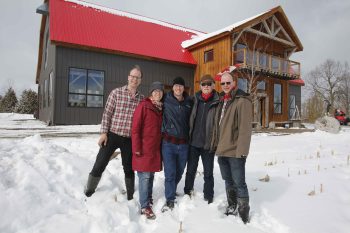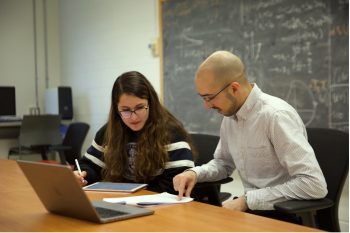Most people have never been up close to a natural gas processing plant, an oil sands operation or a large wind turbine. Yet the energy sector fuels not only Alberta’s prosperity, but also drives the country’s economic engine. Continued innovation in this sector is vital for Canada to remain globally competitive, to ensure a strong, environmentally sustain- able economy for Canadians now and in the future.
But it will take a new way of innovating to find solutions to large challenges such as climate change, or ‘greening’ oil sands production, or making our cities more energy efficient. Universities can and must play a leading in engineering, geoscience, business and other disciplines, and expand our interdisciplinary research and teaching in energy and environment. Here are three examples:
Researchers and graduate students at the University of Calgary are working with those at the University of Toronto–including Professor Heather MacLean (CivE)–along with industry and government partners, on the Life Cycle Assessment of Oil Sands Technology project. It will produce the first comprehensive picture of the economy-wide impacts of current and proposed oil sands operations – a standard that companies can then use to reliably measure their total environmental footprint.
In the Wabamun Area Sequestration Project (WASP), engineers, geoscientists, lawyers and social scientists explored a wide range of issues that must be resolved before carbon emissions can be safely captured from Alberta’s coal-fired power plants and permanently stored underground. Insights from WASP not only identified critical areas needing research, they informed investment and policy decisions by industry and government.



